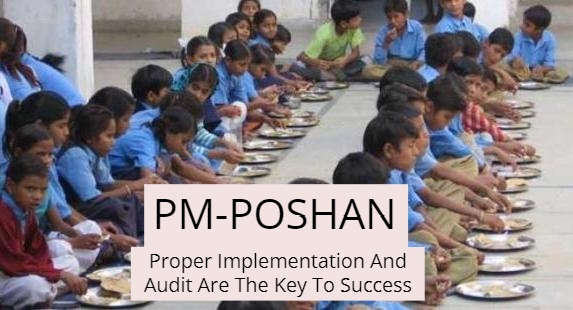

By Linus Garg
First publised on 2021-10-01 06:32:38
The government has replaced the national mid-day meal scheme for school students with PM-POSHAN, a better scheme with wider coverage. The new scheme proposes to provide one hot meal to all school children from pre-primary stage. It proposes to cover 11.8 million children in 1.1 million government and government-aided schools, enrolled in classes 1-8. The Centre will spend Rs 54061.73 crore while the states will contribute Rs 31733.17 crore. With the Centre bearing an additional Rs 45000 crore as the cost of food grains, the total outlay of the scheme will stand at Rs 130794.9 crore. The scheme also proposes to focus on promotion of nutritional gardens.
The two best things about the new scheme, apart from its wider coverage and focus on promoting nutritional gardens, is that the states have been given the right to decide the menu and audits of the scheme has been made mandatory. The first is important as eating habits of children are different in each state and even in regions across the states. A fixed national menu would not have served the purpose. The menu should be set by each state based on local preferences but keeping in mind the nutritional value of the meal. As the National Family Heath Survey (NFHS) -5 had disclosed last year, malnutrition and undernutrition is taking a heavy toll on the growth of children across India. As per data available, stunted, under weight and wasted children are growing in number. One nutritional meal per day will help in reversing this trend apart from inducing parents to send children to school. But it all depends on how the scheme is implemented as reports of children being fed just a roti and salt showed that the earlier scheme was plagued by corruption, at least in some states.
If the PM-POSHAN scheme is properly implemented, it will allow the government to efficiently utilize a part of the buffer food grain stock from Indiaâs overflowing granaries, allow it to reverse the trend of children who are not growing properly due to malnutrition and undernutrition and increase enrolments in schools. For this to happen, proper checks and balances are needed at each stage of the scheme and both the Centre and the states need to keep tabs. The mandatory audits need to be done properly and accountability for lapses must be fixed beforehand.











